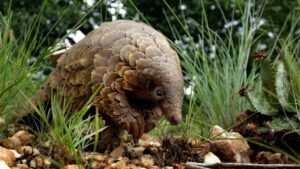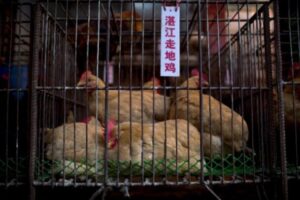
by Dr. Stephen Jurovics
ICCT Advocacy Team Lead
The term creation care in our organization’s name signals that our agenda involves the care of the entire created world we inherited. The Bible, as one source of our interfaith approach, contains many teachings about the appropriate relationships between humans and the fish, birds, and land animals with whom we share this planet. Other faith traditions (e.g., Islam, Buddhism) also contain teachings about the appropriate relationships between humans and other life forms. Examples of such instructions follow this text.
Before the Covid-19 pandemic, many ICCT presentations focused on demonstrating that climate change is a biblical issue as well as a scientific one. The pandemic has moved us to recognize that Covid-19 is also a biblical issue as well as a medical one. A doctrine scholars developed to summarize the numerous biblical instructions on the treatment of animals is: we must exhibit a concern for the distress of living creatures. That is, we are not to cause them distress, and when we see an animal in distress, we are obligated to relieve it.[1]

Early analyses of Covid-19 revealed that it resulted from zoonotic transfer, the transmission of a pathogen from an animal host to a human host.[2] This transfer often results from human behavior toward the animal and, in particular, from the stresses to which the animal has been subjected.
One of the effects of climate change on human health is infectious diseases, and many of these are zoonotic in origin. These diseases now account for “75 percent of all new emerging infections,”[3] and their occurrences have tripled in the past decade. This suggests that even with promising new vaccine technology, we can expect to battle more emerging zoonotic diseases in the future.
 In many parts of the world, human population growth has resulted in the destruction of habitats of birds and wildlife, placing them under great stress. Furthermore, unsanitary and crowded food markets in China, Vietnam, and elsewhere sell wild animals that have been hunted, captured, caged, and placed in alien wet market environments. These actions and the loss of habitat inflict great stress on the animals, resulting in a weakening of their immune systems and sometimes the release of pathogens from the animal to a human host. A human that becomes host to a virulent new pathogen may be unable to generate an adequate immune defense, with Covid-19 as one example.
In many parts of the world, human population growth has resulted in the destruction of habitats of birds and wildlife, placing them under great stress. Furthermore, unsanitary and crowded food markets in China, Vietnam, and elsewhere sell wild animals that have been hunted, captured, caged, and placed in alien wet market environments. These actions and the loss of habitat inflict great stress on the animals, resulting in a weakening of their immune systems and sometimes the release of pathogens from the animal to a human host. A human that becomes host to a virulent new pathogen may be unable to generate an adequate immune defense, with Covid-19 as one example.
However the stress is induced in the animals, such actions violate numerous religious teachings about the treatment of animals. Moreover, as consumers of such abused animals, we are complicit in the animal abuse, making this a religious issue. In addition, we are likely experiencing adverse health effects.[4]
Creation care seeks to reduce negative effects upon this world that result from our acting contrary to religious teachings. Covid-19 is one of the more awful effects, and some ICCT speakers will discuss this as an appropriate part of our advocacy.
Teachings about Treatment of Animals Drawn from Different Faiths
The section below includes a selection of teachings about the treatment of animals drawn from many of the faiths practiced here in the Triangle.
Biblical Teachings about Treatment of Animals
But the seventh day is a sabbath to the LORD your God; you shall not do any work; you, your son or your daughter, your male or female slave, your livestock, or the alien resident in your towns. [Exod. 20:8-10]
The LORD spoke to Moses, saying: When an ox or a sheep or a goat is born, it shall remain for seven days with its mother, and from the eighth day onwards it shall be acceptable as the LORD’s offering by fire. But you shall not slaughter, from the herd or the flock, an animal with its young on the same day. [Lev. 22:26-28]
You shall not see your neighbor’s donkey or ox fallen on the road and ignore it; you shall help to lift it up. [Deut. 22:4]
If you come on a bird’s nest, in any tree or on the ground, with fledglings or eggs, with the mother sitting on the fledglings or on the eggs, you shall not take the mother with the young. Let the mother go, taking only the young for yourself, in order that it may go well with you and you may live long. [Deut. 22:6-7]
You shall not plough with an ox and a donkey yoked together. [Deut. 22:10]
Teachings from Islam about the Treatment of Animals
Contributed by Zohra Osman
From the Hadith – authentic teachings of Prophet Muhammad [Peace & Blessings upon him]
Prophet Muhammad [pbuh] said “A good deed done to an animal is like a good deed done to a human being, While an act of cruelty to an animal is as bad as cruelty to a human being.” (Sahih Bukhari)
Prophet Muhammad [pbuh] once saw a donkey hot branded on the muzzle and said: “May Allah curse the one who marked this animal.” (Sahih Muslim).
Prophet Muhammad’s companions narrate, “We were on a journey and during the Prophet’s absence, we saw a bird with its two chicks; we took them. The mother bird was circling above us in the air, beating its wings in grief. When Prophet Muhammad [pbuh] returned he said, “Who has hurt the feelings of this bird by taking its chicks? Return them to her.” (Sahih Muslim)
“It is a great sin for man to imprison those animals which are in his power” (Sahih Muslim)
Buddhist Teachings about the Treatment of Animals
Contributed by Elise Strevel
The Buddha:
“And so, with a boundless heart should one cherish all living beings.”
His Holiness the Dalai Lama:
“Life is as dear to a mute creature as it is to man. Just as one wants happiness and fears pain, just as one wants to live and not die, so do other creatures.”
“Today, more than ever before, life must be characterized by a sense of Universal Responsibility, not only Nation to Nation and human to human, but also human to all other forms of life.”
Matthieu Ricard (Buddhist monk, translator for the Dalai Lama, Ph.D. in Molecular Biology):
“Those who … persist in justifying the torments we inflict on animals should begin by explaining why the golden rule applies only to human beings and by what right they consider themselves authorized in so limiting it.”
“Benevolence toward all beings is no longer an optional addendum to our ethics but an essential part of it.”
Unitarian Universalism and Treatment of Animals
Unitarian Universalism has seven core principles, and the one most applicable to the topic at hand is “Respect for the interdependent web of all existence, of which we are a part.”
Hindu Teachings and Treatment of Animals
Contributed by KB Chandran
One is dearest to God who has no enemies among the living beings, who is nonviolent to all creatures. [Bhagavad Gita]
He alone sees truly who sees the Lord the same in every creature…seeing the same Lord everywhere, he does not harm himself or others. [Bhagavad Gita]
You must not use your God-given body for killing God’s creatures, whether they are human, animal or whatever. [Yajur Veda 12.32.90]
Footnotes
[1] Stephen Jurovics, Hospitable Planet: Faith, Action, and Climate Change (New York, Morehouse Publishing, 2016), chap. 5, 6.
[2] Nick Payton Walsh and Vasco Cotovio, “Bats are not to blame for coronavirus. Humans are,” CNN Health, 20 March 2020.
[3] Marcus Renney, “The tipping point: Climate crises and zoonotic disease,” Atlantic Council, 14 October 2020.
[4] Ruth Harrison, Animal Machines: The New Factory Farming Industry (London, United Kingdom: Vincent Stuart Ltd., 1964).




